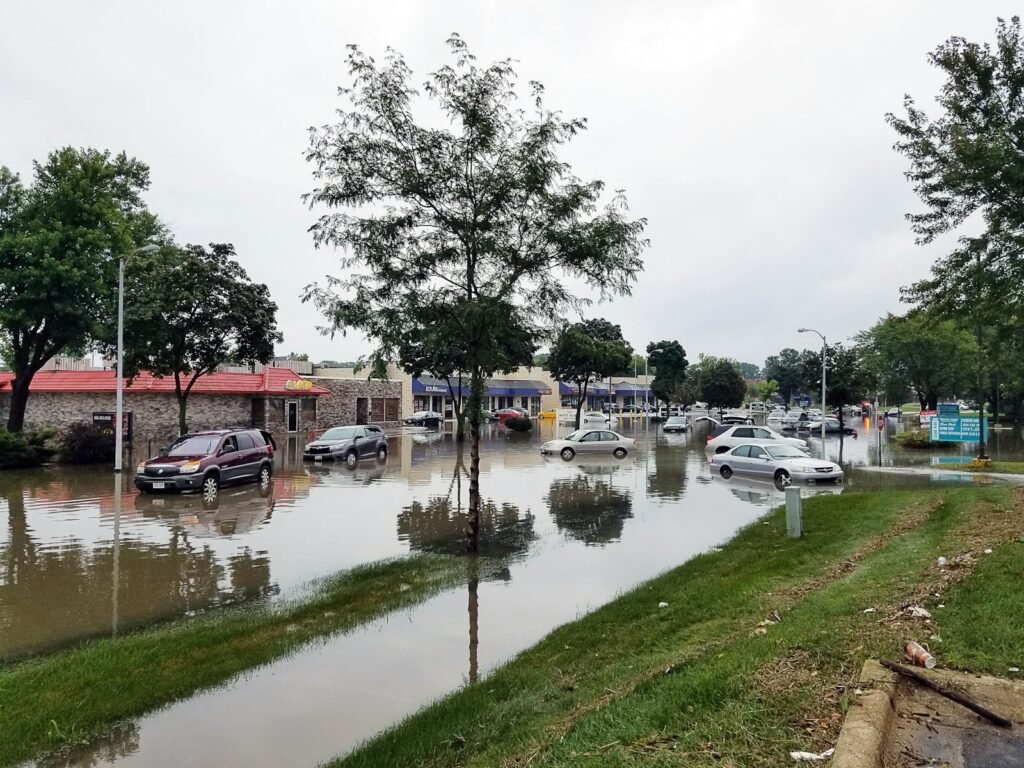
In a report released April 2, TOSHA stated the employees had already been dismissed when floodwaters overtook the area, meaning the deaths fall outside its jurisdiction. The agency found the company showed “reasonable diligence” in evacuating the workplace.
Tennessee OSHA issues no citations for Erwin plastics plant where employees died in Helene flood
by Cassandra Stephenson, Tennessee Lookout
April 10, 2025
Tennessee’s workplace safety agency concluded that an East Tennessee plastics plant where five employees died after being swept away by Hurricane Helene floodwaters “exercised reasonable diligence” in dismissing employees that day.
The Tennessee Occupational Safety and Health Administration (TOSHA) issued its report on the Impact Plastics plant in Erwin, Tennessee on April 2. The agency found that because work had stopped and employees left the building, “the tragic deaths of the Impact Plastics employees were not work-related and therefore do not fall within its jurisdiction.”
The agency did not issue any citations.
The inspection report comes as the family of Johnny Peterson, one of the employees killed in the Sept. 27 flood, moves forward with a lawsuit against the company. The suit alleges that Impact Plastics did not release employees with enough time to escape the rising water.
“TOSHA’s report ignores multiple witnesses’ testimonies, critical text messages, emergency alert logs, and photographic evidence that tell the real story about Impact Plastics’ fatal failures,” Zack Lawson, an attorney representing Peterson’s family in the lawsuit against the company, stated. “We’re grateful that in America, juries — not bureaucrats citing unnamed sources — will decide the truth based on all the evidence.”
Impact Plastics has repeatedly denied wrongdoing and issued a statement on April 2 welcoming TOSHA’s findings.
“These past months, Impact Plastics and its President and Founder Gerald O’Connor have cooperated with the official agencies investigating the flood and events of that day. The facts and the truth are now known,” an attorney representing Impact Plastics stated.
Peterson, four other Impact Plastics employees and one independent contractor were swept away after the semi-trailer truck bed they sought refuge in was toppled by rushing water and debris. Five other employees who were swept into the water were later rescued by helicopter about half a mile downstream.
Investigation details difficulties, offers recommendations
TOSHA’s investigation included site visits, witness interviews, review of surveillance footage and collaboration with law enforcement. The report notes that Impact Plastics’ workplace safety records were destroyed or lost in the flood, and “phone service disruptions, language barriers and other challenges” made communication with witnesses difficult.
The investigation report laid out a timeline of that morning. The National Weather Service released its first flash flood warning alert for Unicoi County at 9:14 a.m., during the company’s morning meeting. Employees were told by managers or other employees to move their vehicles to higher ground between 10 a.m. and 10:30 a.m., when water began to fill the parking lot, the report states.
The site, which lies in a flood plain, lost power at 10:39 a.m. By 10:51 a.m., “employees were reportedly
The ongoing lawsuit against Impact Plastics contests this timeline, citing text messages sent by Peterson to his family before his death. A message to Peterson’s daughter indicated senior management had not dismissed employees by 10:51 a.m. Employees realized they were trapped around 11:12 a.m., according to a text Peterson sent to his father. Peterson understood employees were dismissed only after senior management exited the property around 11:35 a.m., the lawsuit states.
While most employees evacuated, some remained or returned to South Industrial Drive, according to the TOSHA report. “Witnesses and evacuated employees could not clearly explain” why some people did not leave, but the report noted that some witnesses said they were afraid to drive through floodwater, they felt unable to leave by vehicle or on foot, or they believed that the flooding would not worsen.
TOSHA found “no evidence that employees were threatened with termination or forced to work beyond a safe evacuation point.”
While TOSHA does not have a rule requiring employers to develop site-specific severe weather emergency plans, the agency did recommend that Impact Plastics create one and train employees and managers on evacuation during different types of severe weather.
TOSHA Investigation Summary – Impact Plastics 04022025Tennessee Lookout is part of States Newsroom, a nonprofit news network supported by grants and a coalition of donors as a 501c(3) public charity. Tennessee Lookout maintains editorial independence. Contact Editor Holly McCall for questions: info@tennesseelookout.com.
The incident occurred when employees sought refuge in a truck trailer that was swept away. Despite communication difficulties and lost safety records, TOSHA’s investigation did not find evidence that workers were forced to stay.
The agency recommended the company develop a formal severe weather emergency plan, though such a policy is not currently required under state rules.


